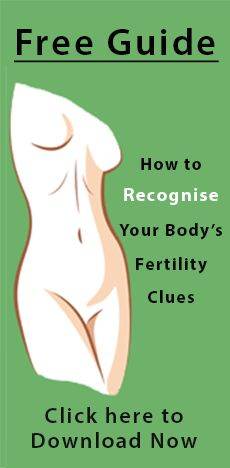It’s news that could have women everywhere throwing away their hot water bottles, painkillers and Tim Tams. A University of Western Sydney study is set to discover if ancient Chinese medicine can provide relief from the monthly cramping, back pain and bloating associated with menstruation.
To be conducted by the UWS Centre for Complementary Medicine Research (CompleMED), the team need 180 women to take part in two trials, which will treat them with Chinese herbal medicine or acupuncture as a way of managing this menstrual disorder, known as dysmenorrhoea.
There are six clinics throughout the Sydney metropolitan area, which have been made available for the trial. The primary base is at the Chinese Medicine Clinical Research Centre, located at Liverpool Hospital – a joint collaboration between UWS and South Western Sydney Area Health Service, but clinics in Paddington, West Ryde, Bankstown, Campbelltown and the CBD will also be operating for participants’ convenience.
CompleMED researcher, Ms Xiaoshu (Sue) Zhu says dysmenorrhoea is one of the most common gynaecological conditions that women face, and can be extremely debilitating, depending on the severity of the symptoms.
‘Studies conducted in Australia and overseas have estimated that period pain affects as many as 50 per cent of menstruating women,’ says Ms Zhu.
‘Dysmenorrhoea is characterised by cramping pain in the lower abdomen or back just prior to menstruation, which can be very painful in some cases and restrict a woman’s lifestyle for the duration of her period.
‘To date, there have been many treatments available for these conditions. Patients are treated with everything from over-the-counter to prescription medications such as pain-relief medication and hormonal regulators like the oral contraceptive pill.
‘The problem is that many of these treatments are aimed at symptomatic relief on an episode-by-episode basis, rather than long-term management of the conditions. In addition, these treatment’s side effects have aroused increasing concern.
‘Documentary evidence indicates that approximately two thirds of women with dysmenorrhea are dissatisfied with their current options. We hope to change that, and possibly provide women with an alternative to ease their symptoms.’
Ms Zhu says the research aims to provide much-needed clinical proof of the effectiveness of these ancient forms of treatment.
‘Chinese herbs and acupuncture have been used for centuries to treat this condition in China, and a number of international studies have found that they are very effective when it comes to managing menstrual disorders because they treat the root cause of the problem,’ she says.
‘However at the moment there is inadequate scientific evidence here in Australia to warrant the widespread use of traditional Chinese medicine to treat these conditions. These two studies will go towards closing the gap between scientific and anecdotal evidence, and serve as a basis for more rigorous and specific trials in the future.
‘If we can provide clinical evidence of traditional Chinese medicine’s effectiveness to treat dysmenorrhoea, we can provide a viable long-term treatment option for the thousands of women who’ve had little choice but to put up with the pain and discomfort of these menstrual disorders.’
130 women are needed for the Chinese herbal medicine trial, while 50 women are required for the acupuncture study. Prior to starting the trial, participants will be interviewed and will undergo a detailed health assessment, to exclude other medical conditions.
Those selected for the herbal trial will receive Chinese herbal treatment for 10 days prior to and during menstruation over a course of clinical intervention, which is three cycles. Those recruited for the acupuncture trial will receive five acupuncture treatments during a course of three cycles. Participants will also be required to complete a menstrual symptoms’ diary and menstrual pain questionnaires.
Both studies have been approved by the UWS and South Western Sydney Area Health Service Human Research Ethics Committees. Participants need to be between the ages of 18-35 for the herbal trial, 18-45 for the acupuncture trial.
All women must have had symptoms of dysmenorrhoea for three or more consecutive menstrual cycles, and have no other significant menstrual or other health disorders.
For more information, contact Xiaoshu (Sue) Zhu on (02) 9772 6528, mobile 0404 880 996
For further information or requests for interviews, contact:
Amanda Whibley, Senior Media Officer
Phone: 02 9852 5824, Mobile: 0418 438 399,

